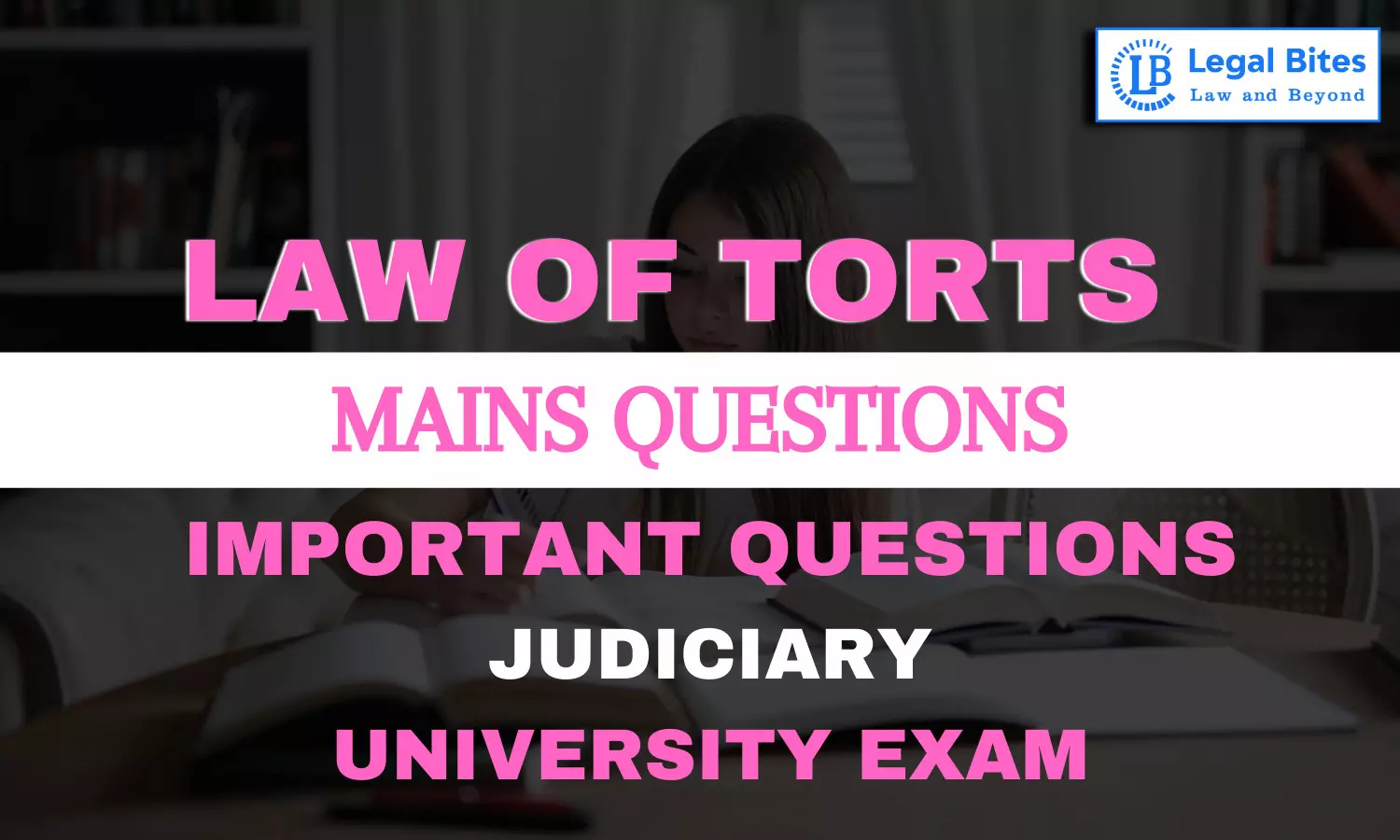Find the question and answer of Law of Torts only on Legal Bites.

Question: Is an infant liable for Torts? [ RJS 1986]Find the question and answer of Law of Torts only on Legal Bites. [Is an infant liable for Torts?]AnswerIn general, infants (children under the age of 18) are not held liable for torts in the same way as adults. This is because the law recognizes that children may not have the same level of judgment or understanding as adults, and may not fully appreciate the consequences of their actions.However, there are some circumstances in which...
Question: Is an infant liable for Torts? [ RJS 1986]
Find the question and answer of Law of Torts only on Legal Bites. [Is an infant liable for Torts?]
Answer
In general, infants (children under the age of 18) are not held liable for torts in the same way as adults. This is because the law recognizes that children may not have the same level of judgment or understanding as adults, and may not fully appreciate the consequences of their actions.
However, there are some circumstances in which an infant may be held liable for a tort. Here are some examples and case laws that illustrate this principle:
Intentional Torts: If an infant intentionally harms another person, they may be held liable for an intentional tort. For example, if a child throws a rock at someone and injures them, the child could be held liable for assault or battery.
One case that illustrates this principle is the case of Mohr v. Williams, (1905) 104 N.W. 12. In this case, a 13-year-old boy intentionally threw a stone at a girl, hitting her in the eye and causing permanent injury. The court held that the boy was liable for battery, even though he was a minor.
Negligence: An infant may also be held liable for negligence if they act in a way that a reasonable child of their age and experience would not. For example, if a child runs into the street without looking and causes a car accident, the child could be held liable for negligence.
Parental Liability: In some cases, parents may be held liable for the torts of their children. This is known as "vicarious liability". For example, if a child damages someone else's property, the child's parents may be held liable for the cost of the damage.
In the case Swarup Kishore v. Goverdhandas, AIR 1956 MB 84, the defendant slapped the plaintiff in presence of several persons. The defendant was a 16-year old boy and the defence plea was that defendant can't be held liable in damages as he was a minor. But this contention was rejected by Justice Dixit who observed that a minor can be held liable for his torts as an adult. The rule of exemption from liability for a minor has no applicability in conduct tortious in itself and in its very essence-
"It is only in those cases where an act is innocent in itself but become tortious by the addition of some ingredient such as intention, malice, knowledge or state of mind in the person charged as a wrong doer that the age and mental capacity of the defendant becomes relevant."
Overall, while infants are generally not held liable for torts, there are some circumstances in which they may be held accountable for their actions. These include cases of intentional harm, negligence, and situations where parental liability applies.

Mayank Shekhar
Mayank is an alumnus of the prestigious Faculty of Law, Delhi University. Under his leadership, Legal Bites has been researching and developing resources through blogging, educational resources, competitions, and seminars.
